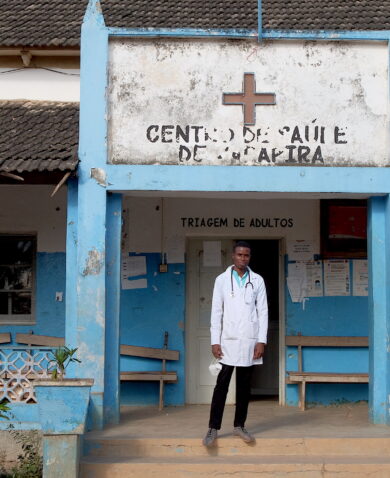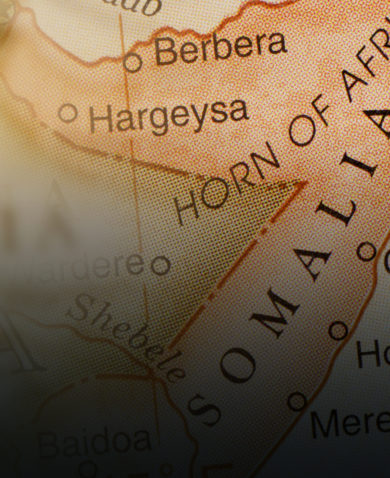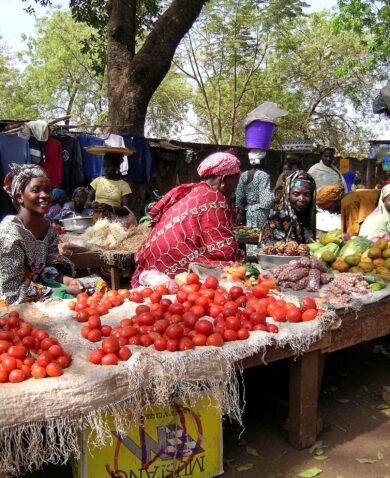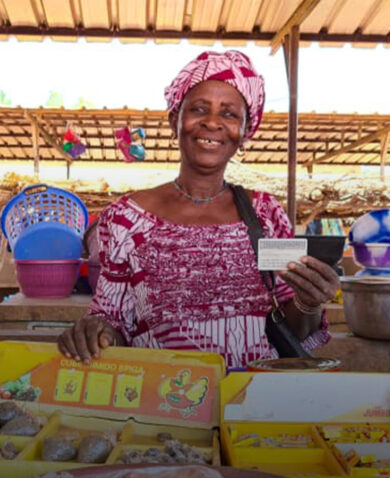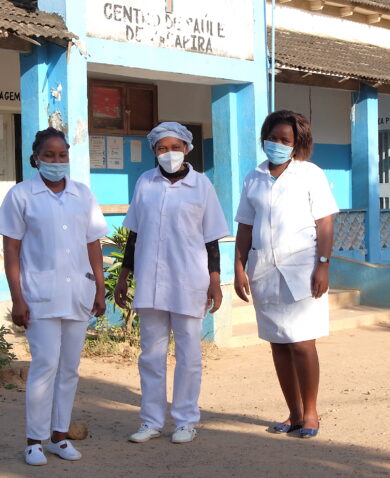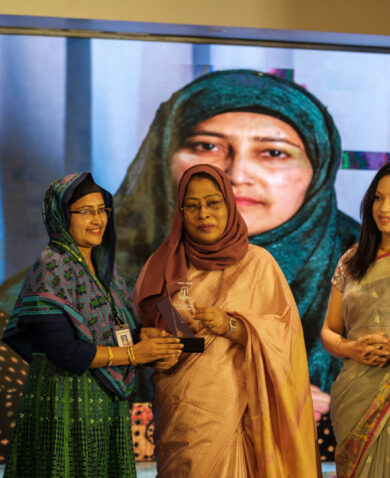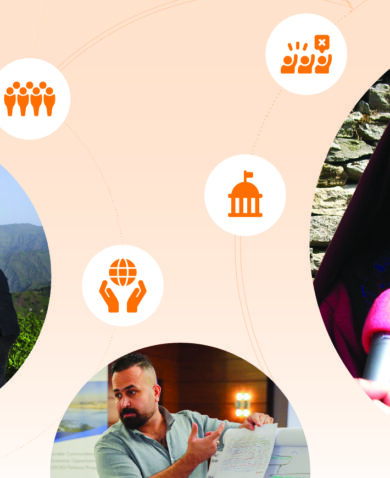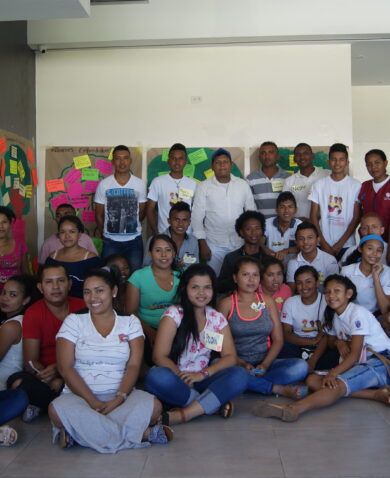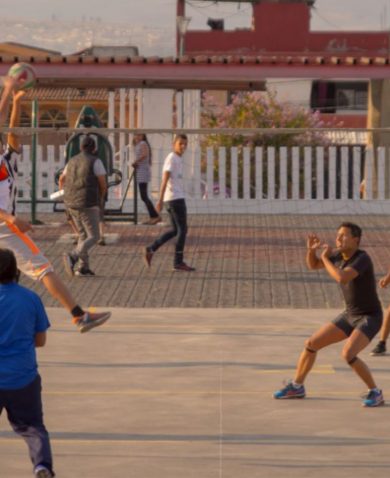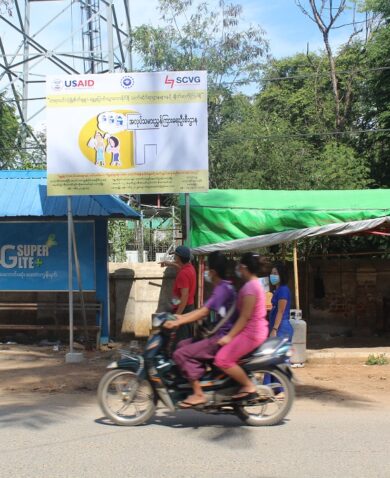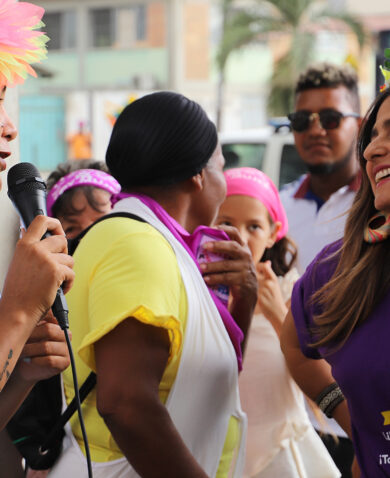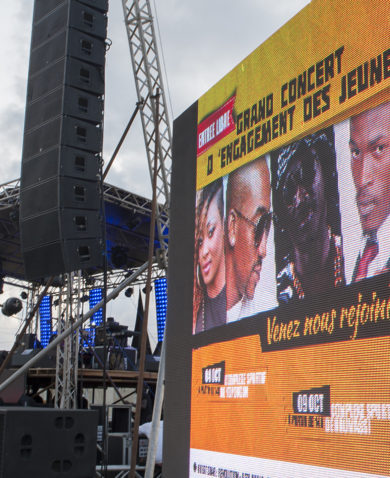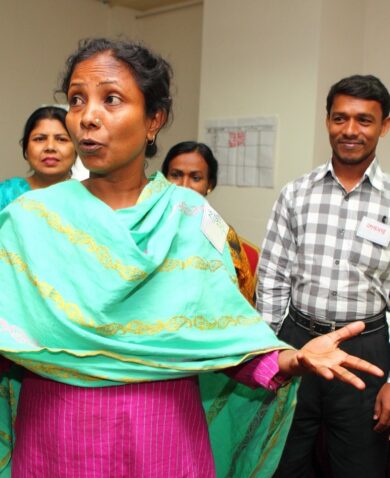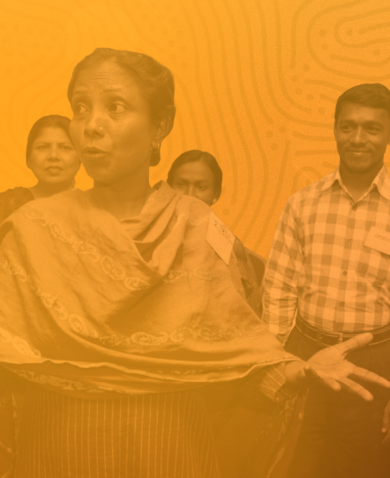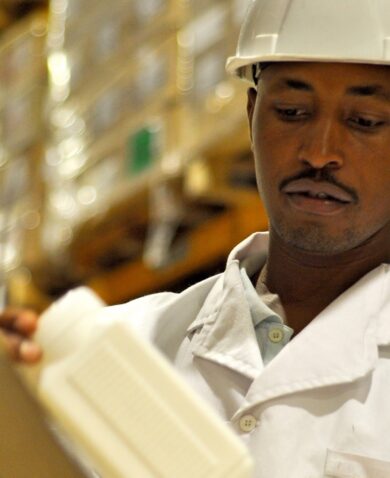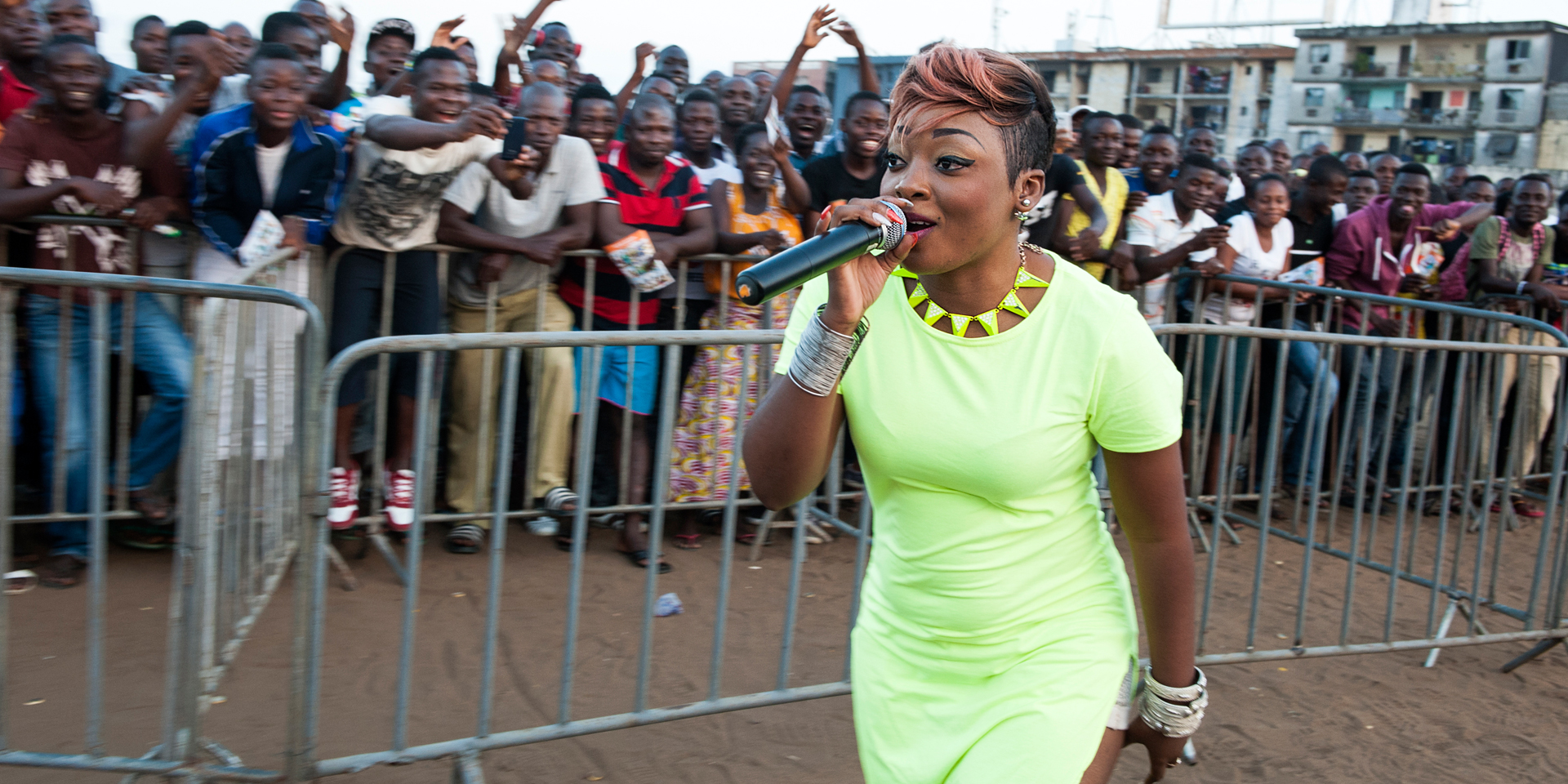
The Power of Artistic Creativity in Preventing Electoral Violence in Côte d’Ivoire
April 7, 2016 | 2 Minute ReadTo mobilize the youth vote in Côte d’Ivoire leading up to the Oct. 25 presidential election, USAID/OTI teamed up with singers like Bamba Ami Sarah to produce a music video and a tour to communities affected by violence following the 2010 presidential election. Photo Credit: Kendra Helmer, USAID
This post was originally published by the Alliance for Peacebuilding and is cross-posted with permission. Chemonics is honored to be an Alliance for Peacebuilding member organization.
The escalation of violence in Côte d’Ivoire after the disputed 2010 presidential election led to the worst humanitarian crisis in the country’s history. Violence devastated families, with an estimated 3,000 deaths, numerous arrests, and hundreds of thousands forced to flee as internally displaced persons or refugees. Following this crisis, Côte d’Ivoire cities were still deeply divided along political and ethnic lines.
In response, USAID’s Office of Transition Initiatives launched the Côte d’Ivoire Transition Initiative (CITI) program in 2011, followed by a second phase of the project (CITI2) from 2014 with implementing partner Chemonics International.
Facilitating peace and reconciliation was a daunting task for Ivorian authorities and civil society, but was crucial to ensure a nonviolent and inclusive presidential election in 2015. The project leveraged multiple innovations, in particular drawing upon the power of music and art in Ivorian youth culture to disseminate nonviolent messages.
In partnership with a local organization, the project engaged young people in creating a song and choreographing a dance with nationally-known singers such as rap artist Bamba Ami Sarah (pictured) and Nash, who grew up near Duékoué, which suffered some of the worst violence. The song conveys messages of public-spiritedness, citizenship, and tolerance, using rap and hip-hop. The chorus emphasizes their call, “I’m young, I’m a citizen/I’m giving my voice for my country, my future.” The project also supported public concerts to promote tolerance and coexistence through song and dance. Ivorians speak nearly 80 languages, and the project used as many local dialects as possible to reach vulnerable populations and youth.
Another activity helped students create community murals demonstrating the importance of peaceful participation in the election. At every mural site a monitor explained the objectives to passersby and invited them to sign a pledge to participate peacefully in the election. The paintings fostered peace and public discussion among a population with low literacy rates, helping make them more resistant to political manipulation.
Election day, October 25, 2015, was peaceful. That was due to many factors, but tapping into the power of music and creativity clearly played a role. The murals and concerts attracted large crowds, and the video clip of the song itself was downloaded more than 150,000 times. By leveraging activities that were exciting and engaging, and communicating in a manner both appropriate and accessible in the local context, the project was able to expand its reach and ultimately achieve its goal.






